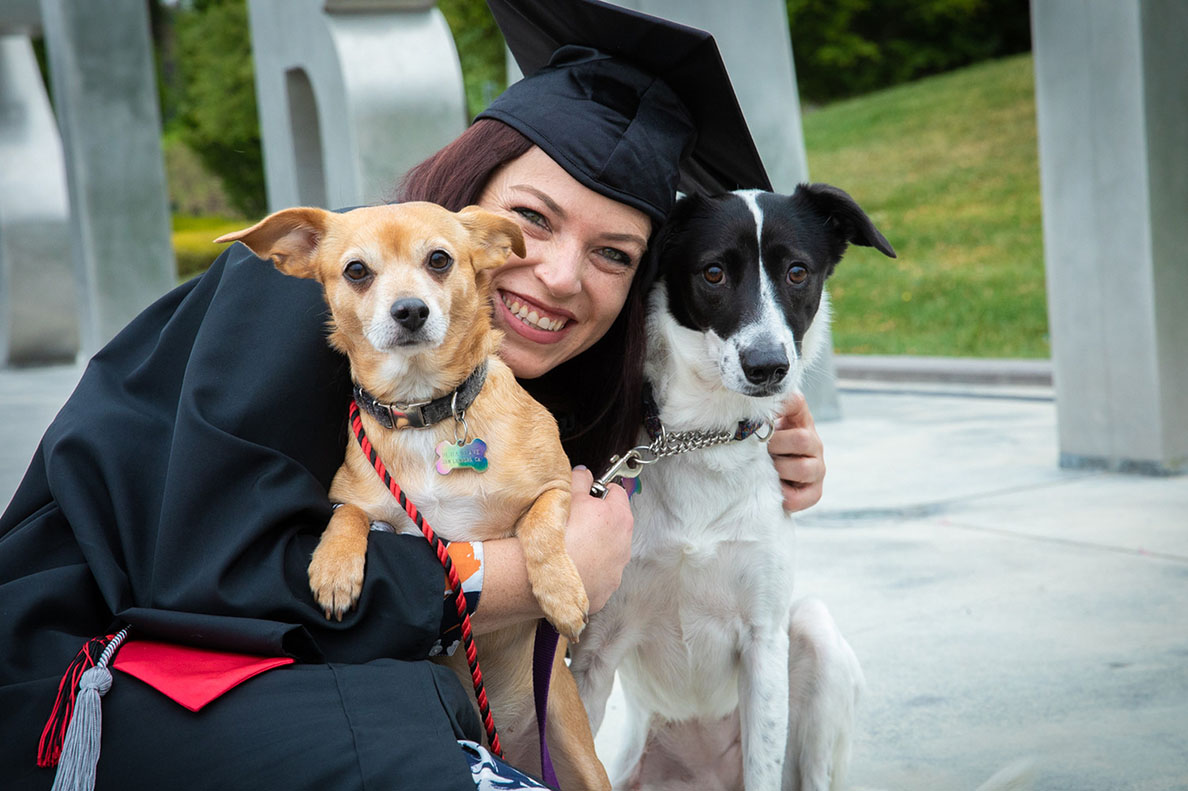
Making Amends
- BY KIMBERLY HAWKINS
- PHOTOGRAPHY BY GARVIN TSO
- May 10, 2019
At the age of 16, Chelsea Sowers had to choose between school and survival. She was living with her father who she describes as a strict Southern Baptist missionary when she was left in their empty home in Georgia.
“My father was arrested for being in contempt of court for not paying child support,” she said. “All of a sudden, I need[ed] to figure out how [to] pay the bills and keep the lights on which was already an issue for us since my father had severe depression and would go into his room for weeks and lock the door. The power would be turned off all the time.”
Sowers said at the time, she waited for weeks for someone to knock at the door or to call to check on her, but no one did. So she went to work, finding a full-time job making $2.38 an hour plus tips at a Waffle House. It was here she says she started experimenting with drugs as a means to keep her awake during long shifts.
This year Sowers, who has been free from addiction for nearly six years, is expected to graduate with a degree in accounting.
“I fell in with a bad crowd,” Sowers said. “I ended up addicted. I was broken inside.”
Despite this, during overnight shifts, Sowers would study, inspired by the college students coming in for a late night snack. And after a couple of years, she earned her GED certificate.
Hoping for a new start, in 2002, she moved to California to be close to her mother with whom she had recently reconnected. After that living arrangement didn’t work out, Sowers moved in with her paternal grandparents in Hayward, but her addiction remained.
“It is very hard to maintain a relationship with someone who is addicted to drugs,” Sowers said. “I was either using, recovering or miserable because I wasn’t using and I hadn’t found a way to fill that hole with something real, not drugs. I broke their hearts. They lived in fear because they weren’t used to being around all the wild stuff that happens to someone who is using.”
Sowers left and for the next decade, she lived in cars — both her own and those of her friends, homeless and occasionally having run-ins with police. She was also in and out of rehabilitation centers.
By 2013, Sowers was out of options. She called her mom and asked for help. While in detox, she had a breakdown over the potential of losing her dog, Deeohgee, who had seen her through her worst. A worker at the detox center stepped in and found Sowers a place at a sober living home where she was allowed to keep her dog.
This was her turning point.
From there, she found a job working at the home, which catered to women and children.
But it wasn’t long after that she received devastating news. Her grandfather was dying.
“We hadn’t talked for 10 years,” Sowers said. “I knew he was sick and I was too scared to call or to stop by. I was afraid to be rejected. The day I got the call he died, I fell to my knees [and] I called my grandmother.”
Her grandmother, who was a lecturer of biology at Cal State East Bay from the early 1970s to the mid-1990s, welcomed her home and encouraged Sowers to go back to school, even offering to pay her tuition.
This year Sowers, who has been free from addiction for nearly six years, is expected to graduate with a degree in accounting. The fact that she is graduating from Cal State East Bay is particularly meaningful since her grandmother, aunt and cousin are all alumni. Her uncle, Brian Sowers has worked in the biology department in the College of Science for more than 40 years.
Sowers says she savors the time she has left with her 94-year-old grandmother, who had a stroke in 2017. They have talked about Sowers’s addiction and shared their struggles. Her greatest regret is not being able to have the same conversations with her grandfather.
“I could never tell my grandfather how sorry I was for everything,” Sowers said. “He would always tell me how smart I was. If he were here, he would tell me, ‘See Chelsea Bells! I told you!’I try to make living amends to my grandparents by becoming the kind of person they always saw when they looked at me.”